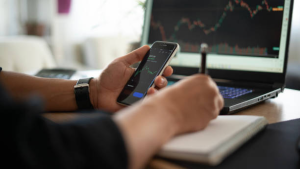UAE Crypto Trading: Regulations, Platforms, and Secure Buying Methods

The United Arab Emirates has emerged as a progressive hub for cryptocurrency adoption in the Middle East. With clear regulatory frameworks, licensed exchanges, and government support for blockchain innovation, the UAE provides an increasingly structured environment for crypto investors. Understanding the legal landscape, choosing appropriate platforms, and implementing proper security measures ensures safe and compliant participation in this growing market.
Understanding How to Buy Cryptocurrency in UAE Legally
Learning how to buy cryptocurrency in the UAE starts with understanding the regulatory environment. The UAE has established clear frameworks governing crypto activities through multiple regulatory bodies. The Securities and Commodities Authority oversees certain crypto assets classified as securities. The Central Bank regulates payment tokens and stablecoins. Dubai’s Virtual Assets Regulatory Authority provides comprehensive oversight for crypto businesses operating in Dubai.
This regulatory clarity distinguishes the UAE from many jurisdictions where crypto exists in legal gray areas. Licensed exchanges operating in the UAE must meet specific standards for security, compliance, and customer protection. This creates a safer environment compared to unregulated markets while maintaining accessibility for retail and institutional investors.
UAE crypto regulatory framework:
- Virtual Assets Regulatory Authority governs Dubai crypto activities
- Abu Dhabi Global Market has separate crypto regulations
- Central Bank oversees payment and stablecoin regulations
- Licensed exchanges must meet security and compliance standards
- Clear tax treatment for crypto transactions
Understanding these regulations helps you operate within legal parameters while accessing the growing crypto ecosystem the UAE supports.
Setting Up and Verifying Your Account
Opening accounts on UAE crypto exchanges requires identity verification meeting Know Your Customer requirements. Prepare your Emirates ID, passport, and proof of address like utility bills or bank statements. Most platforms complete verification within 24 to 48 hours after document submission.
The verification process protects both the platform and users by preventing fraud and money laundering. While it requires sharing personal information, licensed platforms must maintain data security meeting regulatory standards. This verification also enables higher transaction limits compared to unverified accounts.
After verification, link your bank account or debit card for deposits. Most UAE banks now allow transfers to licensed crypto exchanges, though policies vary by institution. Check with your specific bank regarding their crypto exchange policies before attempting deposits.
Funding Your Account with Dirhams
UAE platforms typically accept bank transfers in dirhams, the most cost effective deposit method. Initiate transfers from your banking app to the exchange’s bank account using provided reference codes. Transfers usually complete within hours during business days.
Some platforms accept debit card deposits providing instant funding at slightly higher fees. Credit cards face more restrictions due to banking policies treating crypto purchases as cash advances. Bank transfers remain the preferred method for regular investing given lower costs and reliable processing.
Funding methods comparison:
- Bank transfer: Lowest fees, same-day processing
- Debit card: Instant funding, moderate fees
- Credit card: Limited availability, highest fees
- Cash deposit: Available at some platforms through partners
Start with modest amounts while learning the platform and process. Once comfortable, you can increase deposit sizes for larger investments.
Selecting Cryptocurrencies to Purchase
Begin with established cryptocurrencies like Bitcoin and Ethereum before exploring smaller alternatives. Bitcoin remains the largest and most liquid cryptocurrency, suitable for first purchases. Ethereum powers smart contracts and decentralized applications, representing another core holding.
Research thoroughly before buying any cryptocurrency. Understand the project’s purpose, technology, team, and adoption metrics. Avoid investing based solely on price movements or social media hype. Quality platforms provide educational resources helping you understand different cryptocurrencies before purchasing.
Consider starting with 80% in Bitcoin and Ethereum combined, using the remaining 20% for carefully researched alternatives. This provides core exposure while allowing exploration of other projects as you develop understanding.
Executing Your First Purchase
Navigate to the trading section and select your desired cryptocurrency. Platforms offer simple buying interfaces for beginners and advanced trading for experienced users. For first purchases, use the simple buy option specifying the dirham amount you want to invest.
Review the exchange rate, fees, and total crypto amount you’ll receive before confirming. Rates fluctuate continuously, so the amount you receive varies slightly from when you start versus complete the transaction. Most platforms lock rates briefly while you confirm, preventing unexpected changes.
After purchase confirmation, cryptocurrency appears in your exchange wallet within seconds to minutes. Check your balance to confirm successful completion. Keep email confirmations and transaction records for your personal records and potential tax purposes.
Security Best Practices
Security becomes your responsibility once you own cryptocurrency. Enable two-factor authentication on your exchange account immediately. This requires a second verification step beyond your password, dramatically improving account security. Use authenticator apps rather than SMS when possible for stronger protection.
For amounts you plan to hold long-term, transfer to personal wallets you control. Hardware wallets like Ledger or Trezor store private keys offline, providing maximum security against hacking. These physical devices cost $50 to $200 but protect holdings worth significantly more.
Keep only trading amounts on exchanges. Think of exchanges like carrying cash in your wallet versus storing savings in a safe. Active trading amounts stay on exchanges for convenience. Long-term holdings move to personal wallets you control.
Essential security measures:
- Enable two-factor authentication on all accounts
- Use unique strong passwords for each platform
- Store significant holdings in hardware wallets
- Never share private keys or recovery phrases
- Verify addresses carefully before sending crypto
Treat recovery phrases for wallets like master keys to your wealth. Write them on paper, store in safe locations, and never photograph or store digitally where they could be hacked.
Growing with the UAE Crypto Ecosystem
The UAE continues developing its crypto ecosystem with initiatives like Dubai’s crypto strategy and Abu Dhabi’s blockchain frameworks. Major crypto conferences occur regularly in Dubai and Abu Dhabi. Local meetups and educational events provide opportunities to learn from experienced investors.
Start conservatively, learn continuously, implement strong security, and operate within the clear regulatory frameworks the UAE provides. This approach positions you for successful participation in cryptocurrency markets while leveraging the advantages the UAE’s progressive regulatory environment offers investors.





